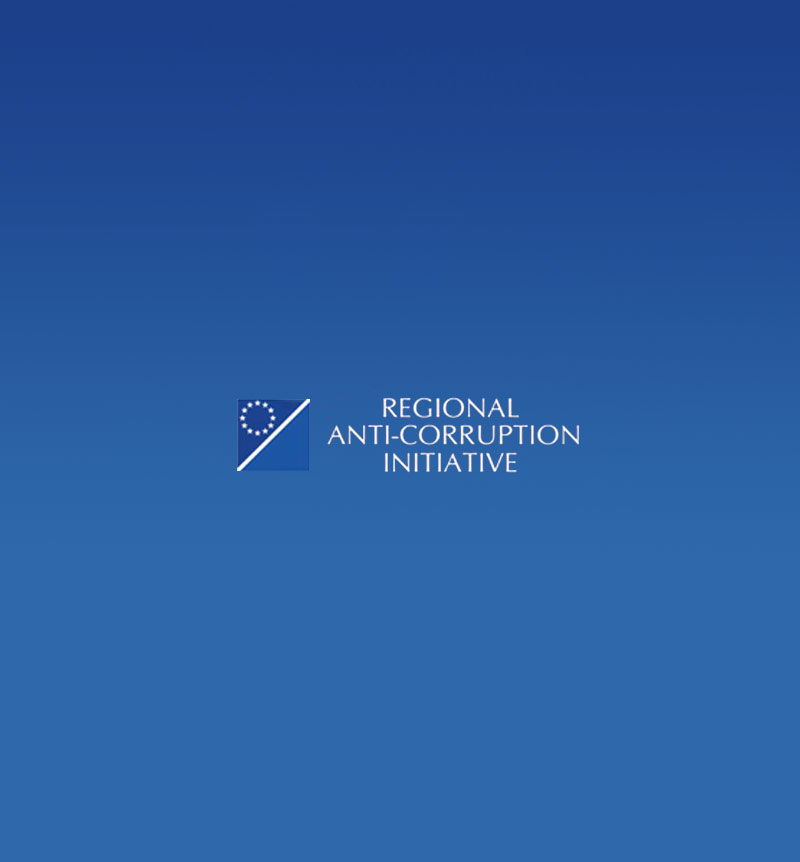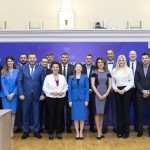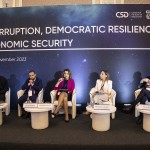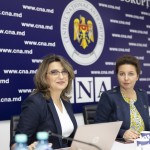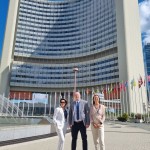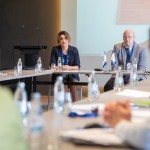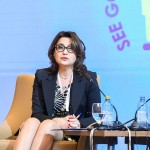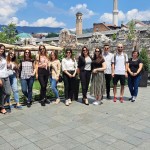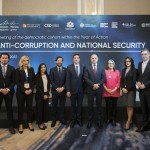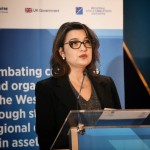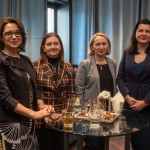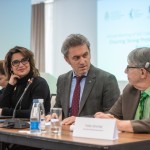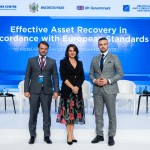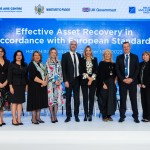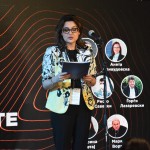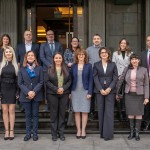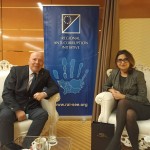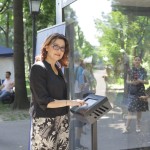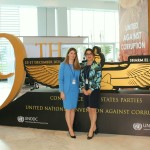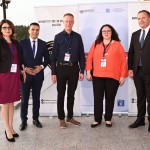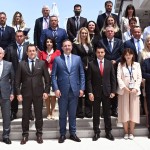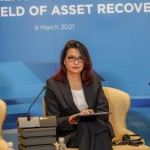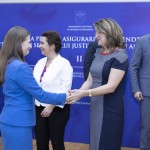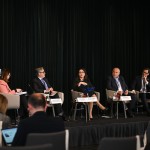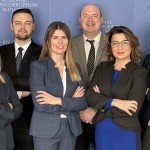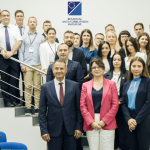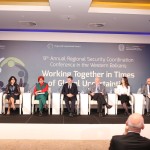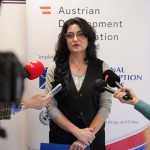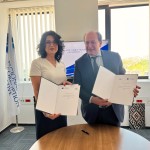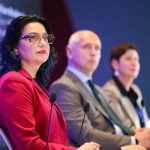- June 23, 2025
- Posted by: Aida Zukic
- Category: RAI News
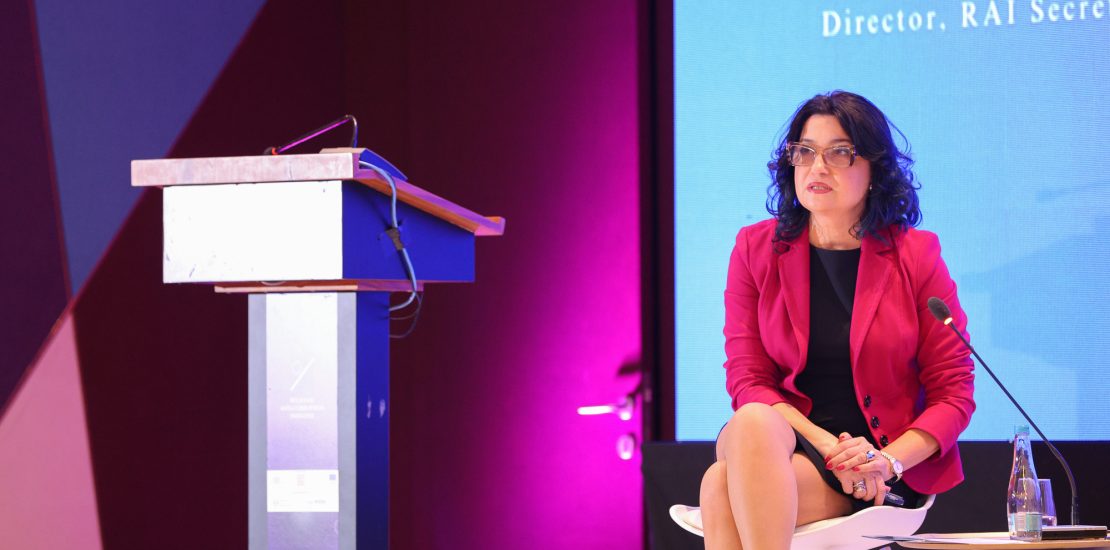
As Desislava Gotskova concluded her four-year term as Director of the Regional Anti-corruption Initiative (RAI) Secretariat, we take a moment to reflect on her leadership, accomplishments, and vision for the future of anti-corruption efforts in South East Europe. In this exclusive interview, Ms. Gotskova shares key moments from her mandate (2021–2025), lessons learned, and insights into building stronger, more transparent institutions across the region.
Looking back at your four-year mandate, what are you most proud of?
There’s much to be proud of — but if I have to choose, it’s the fact that we’ve transformed RAI from a platform for dialogue, knowledge and expertise exchange into a more strategic and credible regional actor, while preserving and expanding its role as a regional anti-corruption resource centre. We have built institutional stability, expanded RAI’s membership with Greece and Ukraine joining as Observers, diversified the funding portfolio, and opened new avenues for cooperation — both by strengthening existing partnerships and by establishing new ones with regional and international organisations. RAI also became a member of the EU Network against Corruption, the Network of Corruption Prevention Authorities (NCPA), and the Integrative Internal Security Governance (IISG), and joined SELEC as an Observer.
However, I’m particularly proud of the trust we earned — from governments, international and regional organisations, donors, and civil society.
What was most rewarding about leading the RAI Secretariat?
The people. Working with a committed and passionate team, and engaging with colleagues across the region who genuinely care about public integrity. Even in the most complex political contexts, there were moments of true alignment — and those moments were inspiring. They reminded me why this work matters and how much can be achieved through joint efforts and shared purpose.
On a more personal note, I’ve been able to channel my energy and ambition into a mission I truly believe in — and that, above all, has been deeply rewarding.
RAI expanded its partnerships significantly during your tenure. What made that possible?
Being a reliable and trustworthy partner. We didn’t chase visibility — we built it through trust. Whether engaging with EU institutions, international organisations, civil society networks, or the media, we focused on being a partner that brings added value and a unique regional perspective.
How do you see the role of regional cooperation in anti-corruption efforts today?
It’s no longer optional — it’s strategic. Corruption today poses a threat not only to national systems, but to regional security, and our response must be equally strong, coordinated, and forward-looking.
Our region has much to offer — we’ve developed unique tools, shared legislative models, and peer networks that are worth showcasing globally. I hope RAI continues to bring the voice of Southeast Europe to international platforms and fora — not only as a beneficiary of external expertise, but as a region demanding tangible results and taking ownership of meaningful, sustained action against corruption.
What advice would you give to your successor or to those working in similar roles?
Stay grounded in values, be flexible in tactics. Integrity and anti-corruption work are challenging, demanding, and often politically sensitive — and progress can be slow. Don’t be discouraged by institutional inertia; focus on building coalitions, even unconventional ones. And lead with ambition, drive, and purpose — because people commit to change when they believe it’s possible, and when they know where you’re leading them.
What lies ahead for RAI — and for you?
In line with the RAI Work Plan 2022–2025, the organisation is currently implementing several important regional projects. Most recently, the RAI Secretariat — as part of a consortium led by the Center for the Study of Democracy (CSD), Bulgaria — was awarded an EU grant under the Internal Security Fund for the implementation of the RAMP Project (2025–2027). This new project will develop and pilot an integrated toolset for risk assessment and anti-corruption policy monitoring, supporting authorities in strengthening their responses to corruption risks.
Alongside its project work, RAI has several major initiatives already underway — including finalising its internal restructuring, developing the new Programme 2025–2028, and preparing to mark the 25th Anniversary of the organisation at a high-level Ministerial Conference in Sarajevo this autumn, where a new strategic document will be adopted. I also hope that the application for Observer Status at the UN General Assembly will be successfully concluded this year.
As for me — I’m taking a breath. But I remain committed to good governance and international cooperation, and open to new opportunities where I can contribute with purpose and impact.
Any final thoughts for the RAI community and partners?
It has been a true privilege to serve the RAI mission. Our region is full of capable, committed people — and when we work together, we shape more than policies. We shape trust. We shape the future.
What I’ve learned over these years is that change is possible — when there’s clarity of purpose, consistency in action, and shared belief in the work we do. I remain deeply grateful for the partnerships, conversations, support, and encouragement I received — and I look forward to seeing the RAI community continue to grow, lead, and inspire.

